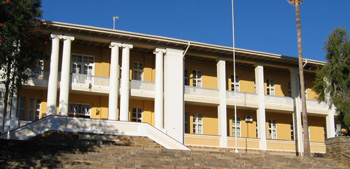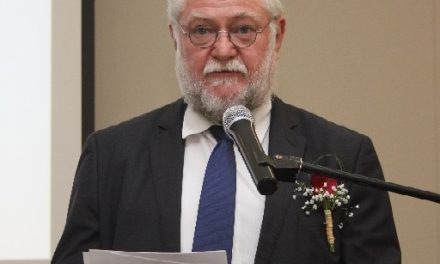
ECN promises confidentiality and anonimity
The Electoral Commission of Namibia (ECN) has assured the public that data collected through the Namibia National Electoral and Democratic Processes Baseline Survey will be kept confidential and respondents will remain anonymous. The survey is being conducted in all 13 regions, currently.
The baseline survey started on 21 May and will run until 7 July.
The Polytechnic of Namibia’s Centre for Entrepreneurial Development (CED) was contracted to execute the survey through a competitive tender system.
The purpose of the survey is to assess the level of understanding the public has on electoral and democratic processes. The survey also looks at how effectively the ECN implements programmes and projects to reach institutional aims and objectives.
According to Johanna Nashandi, project manager for the baseline survey, the survey is a first for the ECN and was outsourced to an external institution to ensure objectivity, increased public response levels, anonymity, confidentiality and quality data management processes.
“The CED, in its quest to build capacity, strives to include Polytechnic 4th year students who have completed research methodology as a course into practical exercises. This is the third time CED is conducting similar surveys and including 4th year students in the Data Collection staff complement. Staff that has worked and has experience in collecting data in previous surveys complements them,” Nashandi explained when asked about the credibility of the students.
Through the National Statistics Agency (NSA), enumeration areas were randomly selected for the purpose of collecting data in line with the objectives of the survey. A total of 70 staff members (52 enumerators, 13 team leaders and five quality assurance officers) are engaged to collect data and will be identifiable by their ECN T-shirts, caps and identification cards that include their identity numbers. The teams will visit 267 areas in Namibia, out of which 4005 households will be interviewed.
Some of the expected outputs of the survey include assessing the levels of understanding of democracy and democratic processes, public and voter confidence in the electoral system; it will also assess the level of turnout to national, regional and local elections. The data collected will be used to establish the most effective communication approaches for voter education.
“We therefore call upon the public especially commercial farmers to collaborate and we assure them that the CED as the implementing agency has put measures in place to ensure anonymity and confidentiality,” Nashandi said.
Although it was earlier reported that the results will be available by August, Nashandi however stated that it is expected that the results of the survey will be made available in November 2012, depending on the progress of the data collection process.












































